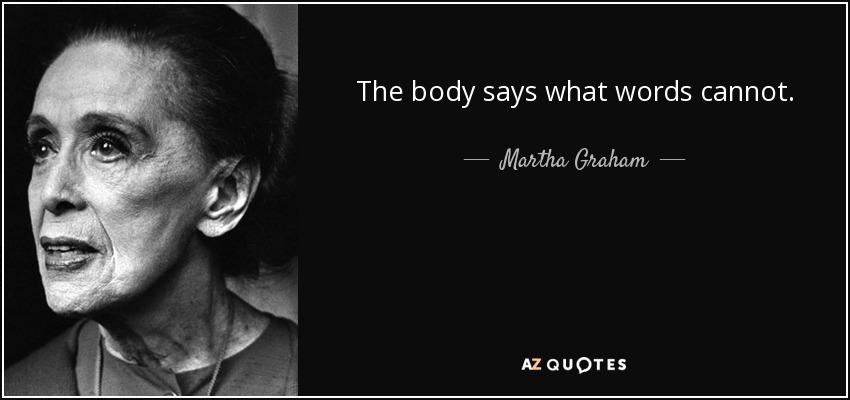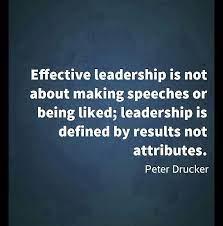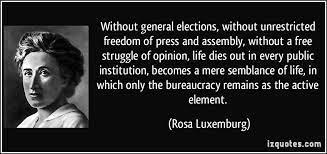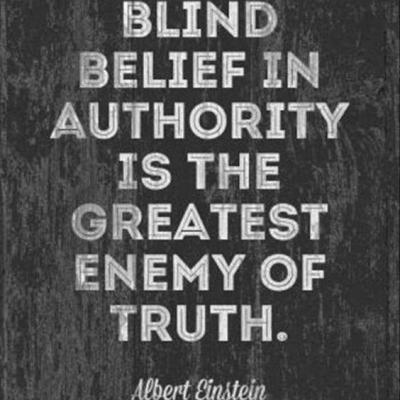Happenings
Events, People and Places
-
The Right to Freedom from Discrimination by Prof. Sabitu Olagoke
- On 17/02/2022
- In The People Talk
 Discrimination, according to researchers is the basis of promoting the slave trade when special consideration is given to differences in language and color.
Discrimination, according to researchers is the basis of promoting the slave trade when special consideration is given to differences in language and color.
The United Nations charter on the fundamental Human Rights charter was equally vehement against acts of discrimination because it is considered as an act of making unjustified distinctions between people based on their beliefs, groups, classes, and other categories as perceived by the oppressors.Read-Legalizing Crime and Criminality
People may be discriminated against on the basis of a race which is divine, gender which is a social construct, age, and religion.
Discrimination goes against an individual's rights simply because of who they are or what they believe in.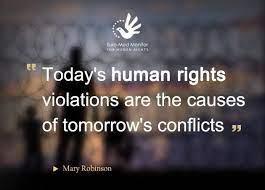 -Landlords and Tenants Associations, Crime and Criminality
-Landlords and Tenants Associations, Crime and Criminality
It, therefore, promotes inequality. In a number of instances, acts of discrimination may emerge when there are intentions to resolve controversial matters.
For any nation, therefore, to experience rapid growth, there must be the right to freedom from discrimination-a citizen that belongs to a particular community, ethnic group, place of origin, sex, religion, or political opinion ought not to be discriminated against.
Developing nations must work in this direction to liberate their citizens from the clutches of backwardness.-Law Enforcement: The Reactionary Approach -Government Workers-A Subject of Debate
-
Insecurity is a Reflection of the Incompetence and Helplessness of Our Leaders-Ex-Officio TUC
- On 17/02/2022
- In News
 The unabating and worrisome insecurity in several parts of Nigeria is a reflection of the incompetence and helplessness of leaders at all levels of government in Nigeria.
The unabating and worrisome insecurity in several parts of Nigeria is a reflection of the incompetence and helplessness of leaders at all levels of government in Nigeria.
This assertion was made by an Ex-Officio of the Oyo State Council of the Trade Union Congress(TUC), Who is also a former chairman of the union in the state, Comrade Andrew Emelieze.
'The kidnappings, killings(for ritual purposes inclusive), bloodletting, and other violent crimes have all established the fact that Those-in-Charge of government at all levels are incompetent and helpless. They are either overwhelmed, helpless in handling the worrisome security situation, or covertly supporting the ugly situation. Man proposes God disposes,'' Comrade Emelieze noted.Read-Legalizing Crime and Criminality -Landlords and Tenants Associations, Crime and Criminality
-Law Enforcement: The Reactionary Approach -Government Workers-A Subject of Debate
-
The Right to Freedom of Movement by Prof. Sabitu Olagoke
- On 17/02/2022
- In The People Talk
 Every man is born with an accompanying right to move around, changing locations for positions to the level of crossing borders or territories. This is strange.
Every man is born with an accompanying right to move around, changing locations for positions to the level of crossing borders or territories. This is strange.Government must be sensitive to the running of the affairs to the people under them by ensuring that democracy is entrenched in every community.
This must be anchored on the maintenance of justice and the concept of equity for the assurance of safe and secured environment for peace and sustainable development.
In the light of this, the Right to Freedom of Movement must be devoid of harassment for the citizens to be exposed to in any form of discrimination.
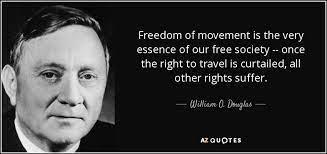
Harassment, therefore, is an unwanted behavior which the citizens must avoid in their daily activities.
Any nation that experiences any of these anomalies is usually regarded as primitive, retrogressive or underdeveloped.
A state of emergency ought to have been declared on the security situation of any nation that daily experiences harassment, molestation or attack.
Let all nations be mindful of this and work on the Chemistry of democracy which dwells on the Right to Freedom of Movement in an environment of peace and sustainable development.
Read-Legalizing Crime and Criminality
-Landlords and Tenants Associations, Crime and Criminality
-
FBI Tech Tuesday: Beware of Romance Scams
- On 10/02/2022
- In News
Press Release
PHOENIX, AZ—Falling in love or falling victim? They could be one and the same. FBI Phoenix wants to educate the public on romance scams, also known as confidence fraud.
Romance scams occur when an individual believes they are in a relationship (family, friendly, or romantic) and are tricked into sending money, personal and financial information, or items of value to the fraudster. This includes the Grandparent’s Scheme and any scheme in which the perpetrator preys on the victim’s “heartstrings”.
According to the FBI’s Internet Crime Complaint Center (IC3), 651 Arizona victims reported losses of more than $20.9 million in connection with confidence fraud/romance scams in 2021. That’s about a 65% increase from the more than $12 million Arizona residents reported losing in 2020.
The FBI suggests these tips if you develop a relationship with someone online:
Research the person’s photo and profile using online searches to see if the material has been used elsewhere.
Never provide your financial information or loan money to someone online. Do not allow your bank accounts to be used for transfers of funds. Never send money to anyone you don’t know personally.
If you are traveling to a foreign country to meet someone check the State Department’s Travel Advisories beforehand Travel, provide your itinerary to family and friends, and do not travel alone if possible.
Beware if the individual seems too perfect or quickly asks you to leave a dating service or Facebook to go “offline.”
Beware if the individual attempts to isolate you from friends and family or requests inappropriate photos or financial information that could later be used to extort you.
Beware if the individual promises to meet in person but then always comes up with an excuse as to why he or she can’t. If you haven’t met the person after a few months, you have good reason to be suspicious.
If you are planning to meet someone in person you have met online, meet in a public place, and let someone know where you will be and what time you should return home.
Victims may be hesitant to report being taken advantage of due to embarrassment, shame, or humiliation. It’s important to remember, romance scams can happen to anyone at any time.
If you suspect your online relationship is a scam, cease all contact immediately. If you are a victim who has already sent money, immediately report the incident to your financial institution. Then inform your local law enforcement agency or FBI Phoenix at (623) 466-1999. Victims are also encouraged to file a complaint with the FBI at ic3.gov.
For more information on romance scams, visitClick
Source-FBI
Read -Legalizing Crime and Criminality
-Landlords and Tenants Associations, Crime and Criminality
-
2023 Presidency- Vote in a Healthy Person with Governance Experience and Initiative-Ex-Officio TUC
- On 29/01/2022
- In News
 Nigerians have been advised to vote in a President with governance experience,integrity and a high level of initiative.
Nigerians have been advised to vote in a President with governance experience,integrity and a high level of initiative.Read-Legalizing Crime and Criminality
This advice was given by an Ex-Officio of the Oyo state Council of the Trade Union Congress(TUC), who is also a former Chairman of the union in the state, Comrade Andrew Emelieze.
-Landlords and Tenants Associations, Crime and Criminality
‘’Nigerians always make the mistake of idolizing personalities with the hope that such personalities shall facilitate good governance. This is deceptive as reflected in the present administration at all levels. Nigerians should vote in a healthy President who is physically fit, with a wealth of experience, integrity and a very high level of initiative. Same for all political office holders occupying executive and legislative positions at the federal, state and local government levels.
However, for good governance to be achieved, the system must be overhauled before the general elections in 2023. If the system is not overhauled, the next President, a number of Governors and lawmakers could be worse than what we are experiencing presently,’’ Comrade Emelieze warned.
-Law Enforcement: The Reactionary Approach -Government Workers-A Subject of Debate
-
Nigerians should be Scripture Compliant to enable Divine Intervention-Prof. Olagoke
- On 29/01/2022
- In News
 Nigerians have been called upon to be Scripture complaint to enable divine intervention in the affairs of the country.
Nigerians have been called upon to be Scripture complaint to enable divine intervention in the affairs of the country.This call was made on Saturday by the Founder, Spiritual Head and Grand Imam of Shafaudeen-in-Isalm Worldwide, Prof. Sabitu Olagoke in address titled SAVING NIGERIA FROM BECOMING A FAILED STATE : OUR COLLECTIVE CHALLENGES AND RESPONSIBILITIES at the Grand Finale of the Shafudeen-inIsalm Wordwide annual convention ‘Ishrat 2022’ in Ibadan, Oyo state Nigeria.
Read-Legalizing Crime and Criminality
‘’Let us be more serious and practical on scripture compliance of our chosen religion to allow for divine intervention in our affairs in Nigeria for the restoration of peace, regulation and control of our security network for ensured peaceful co-existence and sustainable development for people’s wellness and prosperous land with high exporting index and high Human Development index, Prof. Olagoke stated.
-Landlords and Tenants Associations, Crime and Criminality
He asserted that good governance was an antidote to system failure saying, ‘’Dignity of labor, competence, good work attitude, timely response in attending to issues, Transparency, Accountability, Trust, Deterrence based on effective scale of Justice and Respect for Equity concept, are the thrust of Governance to avoid driving Nigeria towards a failed state.’’
-Law Enforcement: The Reactionary Approach -Government Workers-A Subject of Debate
-
Enacting Laws to Preserve Evil
- On 24/01/2022
- In Solomon's Column
Peaceful change and superior honesty of the advantages of democracy.
However, the alteration of the truth brings about disillusionment among the people and the continuous worrisome blood shed of human lives is reflecting negatively on governance.
All Governments from time immemorial have been characterized by the twin evils of corruption m and embezzlement of public funds.Read-Legalizing Crime and Criminality
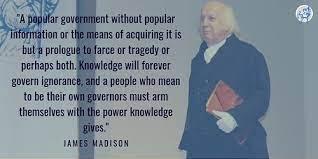
Aspirants to dictatorships believe that the above mentioned are the major features of political life.
In dictatorships, an invariable and inevitable practice, is for the party in power to give jobs to party members, supporters abs hangers on, in return for their loyalty. This is corruption.
-Landlords and Tenants Associations, Crime and Criminality
Indeed, the court cases in the Judiciary are dispensed of by the wishes of the government and not by evidences.
In addition, laws are hurriedly enacted for the preservation of the rot in the system.
In dictatorships, the ruling party takes the position of the state, and ensures that the profession of a particular set of political opinions becomes the first qualification for those in the Civil and Public Service, rather than competence and honesty.
-Law Enforcement: The Reactionary Approach
However, although Governments are liable , there are f weapons fight it in a democracy which are suppressed in dictatorships form is labelled Glieshaltung, unifying the state. This form of corruption is not removed by dictatorships, but remodeled.
Democratic governments, unlike dictatorships, have a moral claim on the allegiance of the people, but today in Nigeria, the impoverishment of the people is the foundation for the condemn able actions and inaction of the government.
Indeed, lawlessness, crime, all forms of criminality and evil are sign posts of daily life across the country.
-Government Workers-A Subject of Debate
-
The Right to Peaceful Assembly and Association by Prof. Sabitu Olagoke
- On 20/01/2022
- In The People Talk
 A group of people gathered in one place for a common purpose could be regarded as an assembly for a common purpose which is in tandem with the Fundamental Human Rights of the People as enshrined in the Universal Declaration of Human Rights document of the United Nations.
A group of people gathered in one place for a common purpose could be regarded as an assembly for a common purpose which is in tandem with the Fundamental Human Rights of the People as enshrined in the Universal Declaration of Human Rights document of the United Nations.This is why the Government and the communities affected should be wary and take the necessary steps to stem the ugly tide.

Every individual, therefore, ought to assemble freely and associate with other persons for the protection of his or her own interests, without molestation, but provided it is lawfully channeled and peacefully presented.
Be an active citizen and perform your civic responsibilities to promote peace, enhance progress and realize development.
Read-Legalizing Crime and Criminality -Landlords and Tenants Associations, Crime and Criminality
-Law Enforcement: The Reactionary Approach -Government Workers-A Subject of Debate




